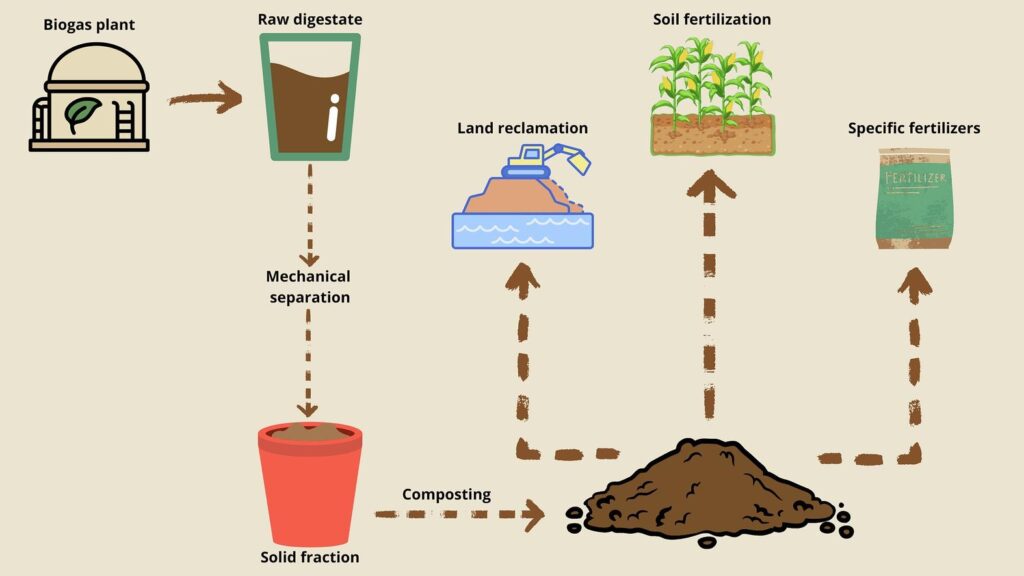Anaerobic digestion offers a range of significant benefits. Globally, it helps reduce greenhouse gas emissions and minimize waste. Organic waste, when left untreated, can release methane—a potent greenhouse gas with a global warming potential over 25 times greater than carbon dioxide. Additionally, leachate from organic waste can pose serious risks to groundwater resources. On a more localized level, biogas reactors provide numerous advantages to both industries and farm owners, including but not limited to:

Effective Farm Waste Management:
Reduced Energy Bills:
On-farm biogas generation can significantly lower energy bills by converting organic waste into biogas, which can be used as a renewable energy source for heating, electricity, and even powering farm machinery. By producing their own energy, farmers reduce their reliance on external energy sources, leading to substantial savings. Additionally, using biogas helps offset the cost of waste disposal, making it a cost-effective and sustainable solution for managing farm waste while lowering overall energy expenses. 8 out of 10 farm owners in Ontario have declared high energy bills as a major concern in the future of their business.
Nutrient Rich Fertilizer:
Digestate, a valuable byproduct of anaerobic digestion, provides numerous advantages as a fertilizer. It is rich in essential nutrients such as nitrogen, phosphorus, and potassium, which are crucial for plant growth and soil health. Unlike synthetic fertilizers, digestate not only supplies these nutrients but also improves soil structure by enhancing its organic matter content. This leads to better soil aeration, water retention, and overall fertility. Additionally, using digestate helps close the nutrient loop by recycling organic waste back into the soil, reducing the dependency on chemical fertilizers and minimizing environmental impact. Its application supports sustainable farming practices, promotes soil health, and can lead to improved crop yields.
Reduced GHG Emission:
Employing anaerobic digestion on farms significantly contributes to greenhouse gas (GHG) reduction by capturing methane that would otherwise be emitted from decomposing organic waste. Methane, a potent greenhouse gas with a global warming potential over 25 times greater than carbon dioxide, is effectively converted into biogas during the digestion process. By utilizing this biogas for energy, farms not only prevent methane from escaping into the atmosphere but also reduce their carbon footprint. This process mitigates the impact of farming operations on climate change, supports environmental sustainability, and aligns with global efforts to reduce GHG emissions.